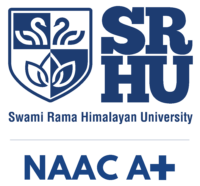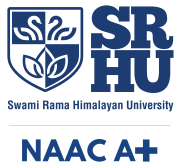Policy for Lifelong Learning
November 6, 2025 2025-11-15 6:32Policy for Lifelong Learning
Policy for Lifelong Learning
| Approved | Board of Management on 12th January 2019 |
| Notification | Notified by Registrar vide notification No. SRHU/Reg/OO/2019-04 (i) dated 15th January 2019 |
| Reviewed / Revised | Board of Management on 29th March 2022 |
| Notification | Notified by Registrar vide notification No. SRHU/Reg/OO/2022-58 (i) dated 5th April 2022 |
| Next Review | 2025–26 |
- Short Title & Commencement
- This Policy shall be called the “Policy for Lifelong Learning” of Swami Rama Himalayan University.
- This Policy shall be deemed to have come into force from the date of approval of the Board of Management of the University.
- Purpose
- To promote continuous, inclusive, and equitable learning opportunities for individuals of all ages, backgrounds, and abilities fostering personal growth, employability, and social participation in alignment with SDG 4.
- Scope
- All students, faculty, and staff of the institution
- Alumni, adult learners, and community members engaged in lifelong learning programs
- Government, private sector, and community partners collaborating in educational initiatives
- Goals
- Promote a culture of lifelong learning across all levels of society.
- Enhance access to quality education and training opportunities for people of all ages.
- Develop relevant skills for employability, entrepreneurship, and innovation.
- Encourage digital literacy and learning flexibility through technology.
- Foster social inclusion and equity in educational participation.
- Strategic Actions
- Access and Inclusivity
- Provide open and flexible learning programs (e.g., evening, weekend, and online classes).
- Offer scholarships, financial aid, and community-based education for marginalized groups.
- Develop recognition of prior learning (RPL) systems to validate informal or experiential learning.
- Skills Development and Employability
- Integrate technical, vocational, and digital skills training into continuing education programs.
- Partner with industry, employers, and local government to ensure programs align with labour market needs.
- Encourage entrepreneurship education and innovation hubs for learners.
- Digital and Open Learning
- Utilize online platforms, e-learning tools, and open educational resources (OERs) to expand access.
- Provide digital literacy workshops for all learners and educators.
- Establish community learning centers equipped with ICT facilities.
- Faculty and Institutional Development
- Train educators in adult learning methodologies and technology-enhanced teaching.
- Encourage faculty to engage in lifelong learning and professional development.
- Establish an Office for Lifelong Learning and Continuing Education to manage programs.
- Partnerships and Community Engagement
- Collaborate with local communities, NGOs, and international organizations to deliver community learning programs.
- Promote learning for sustainable development, civic participation, and environmental awareness.
- Develop learning cities and communities that foster continuous education.
- Access and Inclusivity
- Monitoring and Evaluation
- Academic Unit heads will monitor and evaluate Lifelong Learning aspects.
- They will develop lifelong learning indicators (e.g., participation rates, program completion, skills outcomes).
- Conduct annual reviews and tracer studies to evaluate impact and relevance.
- Align monitoring with SDG 4 indicators and national education frameworks.
- This policy shall be reviewed every three years or earlier if required to accommodate new educational practices, regulatory requirements, or emerging student needs.
- The University reserves the right to interpret, alter, amend, modify, cancel or withdraw any or all provision mentioned herein above in this policy without any notice.
- In case of any dispute, the decision of the Vice Chancellor of the University shall be final and binding.

